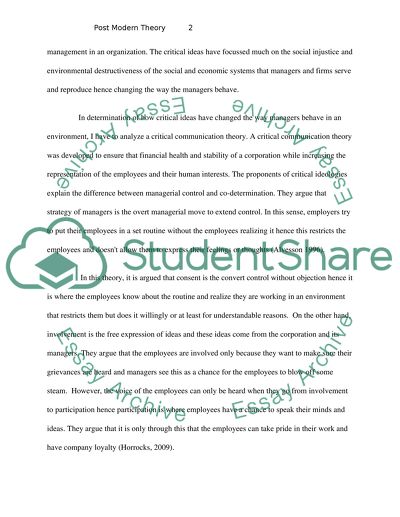Cite this document
(“Coursework for Critical and Postmodern Theories of Organizations Essay”, n.d.)
Retrieved from https://studentshare.org/environmental-studies/1414700-coursework-for-critical-and-postmodern-theories-of
Retrieved from https://studentshare.org/environmental-studies/1414700-coursework-for-critical-and-postmodern-theories-of
(Coursework for Critical and Postmodern Theories of Organizations Essay)
https://studentshare.org/environmental-studies/1414700-coursework-for-critical-and-postmodern-theories-of.
https://studentshare.org/environmental-studies/1414700-coursework-for-critical-and-postmodern-theories-of.
“Coursework for Critical and Postmodern Theories of Organizations Essay”, n.d. https://studentshare.org/environmental-studies/1414700-coursework-for-critical-and-postmodern-theories-of.


